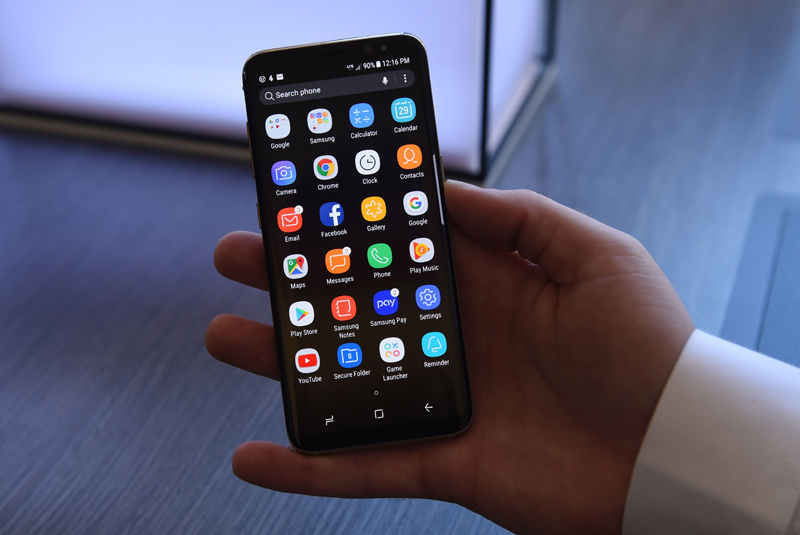Samsung's S8 success key to bigger plans

Samsung's premium phones have been a sure bet to fly off the shelves upon their launch in recent years. However, reception to the launch of its newest flagship Galaxy S8 might be more subdued this time round, as users play it safe before getting one.
[embed]https://studio.brightcove.com/products/videocloud/media/videos/5378583439001[/embed]
But the success of the S8 is crucial to Samsung not only for its mobile sector, but also for its bigger, grander plans in both artificial intelligence (AI) and the Internet of Things. In both areas, Samsung wants to make the mobile phone the control centre in order to integrate more consumers into the wider ecosystem the company has products in.
Analysts are confident that the S8 - which goes on sale later this month - will sell well, but only after consumers are assured of the phone's safety and quality. And this may take months, leading to a slow takeup of the S8 globally.
"The S8 needs to offer an exemplary experience to regain the consumer's confidence," said Mr Cris Duy Tran, a digital transformation consultant at market research firm Frost & Sullivan.
On paper and from initial hands-on testing, the S8 does deliver a near-exemplary experience, being a premium product that has both the hardware and software befitting of a 2017 flagship.
But the spectre of Samsung's Note7 debacle, where more than 4.3 million phones were recalled worldwide due to manufacturing and design faults with the batteries that caused them to catch fire, continues to haunt the company.
If this results in a wait-and-see approach with the S8, it could prove costly for Samsung, as it gives consumers time to explore other competitor launch options in the months while they wait.
"If the Note7 incident hadn't happened, I would immediately swop my iPhone for the S8 when it launches," said bank analyst Jeremy Ho, 27.
"But now I think it's safer to wait and see if anything happens."
Indeed, the pressure is on Samsung to deliver with the S8 and to regain consumer confidence. With the S8 line under intense scrutiny, it is likely that every incident - small or major - runs the risk of jeopardising the phone's success.
But analysts are optimistic, pointing to Samsung's excessive safety marketing campaign and that it may offer a longer return period to set consumers' minds at ease.
Said IDC Asia-Pacific research manager Kiranjeet Kaur, who tracks the smartphone market: "I don't think we can generalise to say all consumers have lost trust in Samsung after the Note7 fiasco, but the success of the S8 would certainly emphasise that Samsung is capable of getting back on its feet even after the tough times it has seen in the recent days.
"The new Galaxy S series should put Samsung back on its feet and position it as a strong contender in the premium smartphone segment."

The introduction of Bixby, the company's own AI-powered virtual assistant software, sets Samsung up in the AI race alongside its rivals Google and Amazon.
Bixby is not some throwaway software Samsung is experimenting with either, as Samsung dedicated an entire button on the left of the S8 to activate the assistant.
The decision to integrate Bixby in the S8 is clearly a strategic one, pointed out Frost & Sullivan's Mr Tran.
"From a strategy point of view, Samsung would like to demonstrate to the world and its shareholders that it is aggressive, agile and ready to compete using new technologies such as AI," he said.
Bixby will eventually be integrated with Samsung's existing smart-home system, which will allow users to perform tasks such as check what's inside their fridges, turn off lights or start a robot vacuum-cleaner using voice commands on their smartphones.
Samsung is in the process of becoming a powerhouse in selling smart solutions and smart technologies, similar to Google, IBM and Intel, said Mr Tran.
"By offering smart solutions and technologies, the phone becomes a device or tool linking it with users, increasing their interaction," he said. "Hence, Samsung is no longer simply selling smartphones but a lifestyle."
lesterh@sph.com.sg

This article was first published on April 5, 2017.
Get a copy of The Straits Times or go to straitstimes.com for more stories.